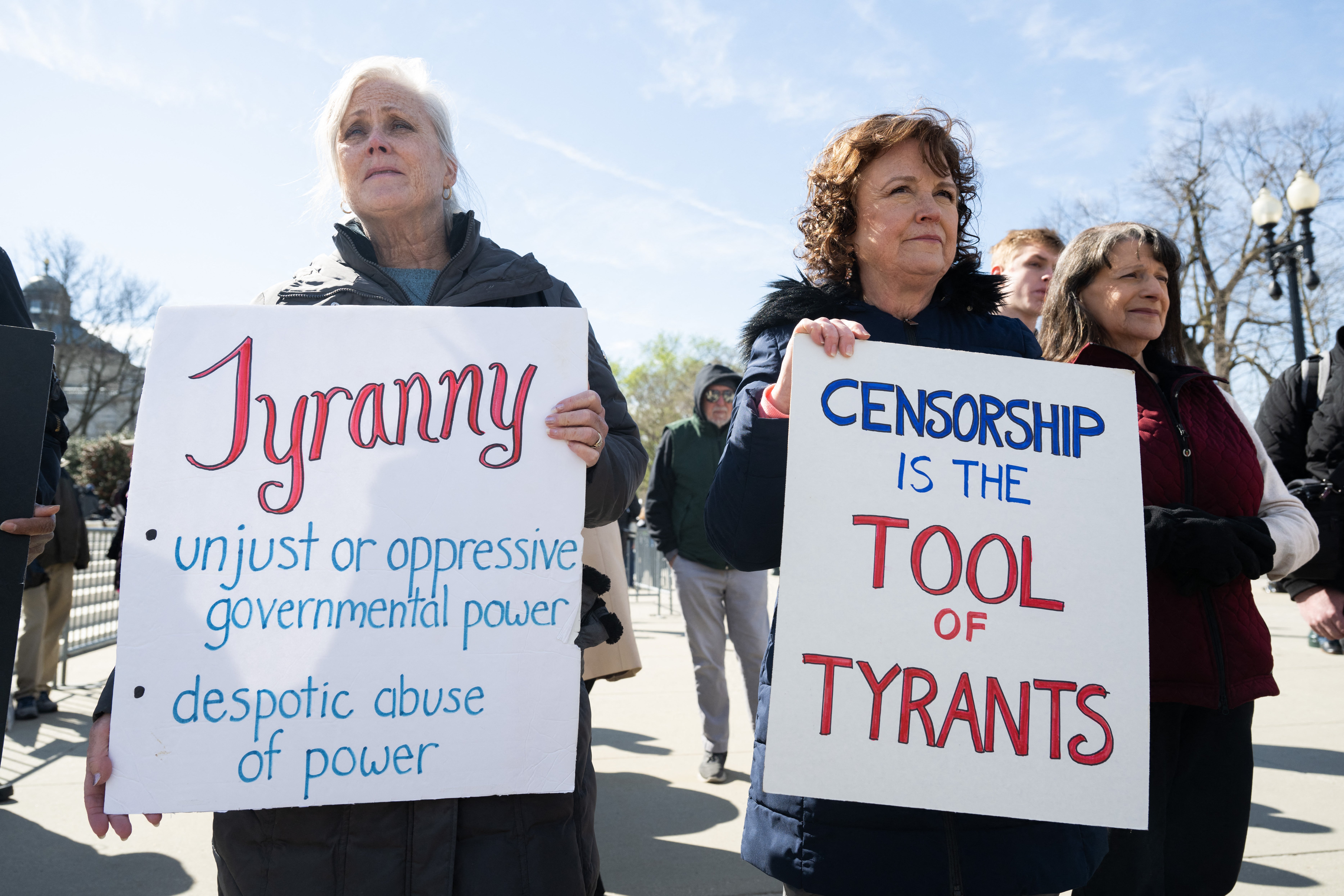Supreme Court avoids ruling in battle over social media moderation
The justices punted the social media moderation cases back to the lower courts

The Supreme Court on Monday ordered lower courts to take another look at a set of content moderation laws in Florida and Texas that were designed to protect conservative speech on social media platforms.
In a unanimous decision, the justices punted the social media moderation cases back to the lower courts, finding that they failed to properly analyze First Amendment challenges to the laws.
For now, social media companies can continue to regulate speech posted on platforms as usual. But the court’s refusal to issue a ruling on the constitutional question leaves the door open for other legal challenges to laws on content moderation.

Under conservative leadership, Texas and Florida passed laws restricting what kind of content may be taken down or who can be banned from platforms. They claimed that social media companies used subjective criteria in moderating content — a violation of the First Amendment.
In Florida, a law enacted by Governor Ron DeSantis in 2021 prohibited social media companies from banning political candidates and taking down content from “journalistic enterprises” — defined as having 100,000 monthly users or 50,000 subscribers.
It was brought after former president Donald Trump’s ban from Twitter after the January 6 attack on the Capitol.
Similarly, the Texas legislature passed a law prohibiting social media companies from removing content on platforms based on the user’s viewpoint. It also gave individuals the right to sue the platforms for doing so.
Both laws were crafted to be broad and vague, making it easier to apply them to various social media networks.
But NetChoice LLC, a tech company, disputed the laws, arguing that social media companies have protections similar to that of news organizations.
The case posed a challenge for Supreme Court justices who debated treating the lawsuits as facial challenges – that is, sweeping challenges alleging laws are completely unconstitutional.

During oral arguments, justices seemed skeptical of Florida’s argument. Justices Roberts, Kavanaugh and Barrett expressed concern over the laws infringing on social media companies’ First Amendment right to decide what content appears on their platforms. Justices also raised concerns about applying the standards set by the state laws to other platforms that encourage user expression like Etsy.
“The courts mainly addressed what the parties had focused on. And the parties mainly argued these cases as if the laws applied only to the curated feeds offered by the largest and most paradigmatic social-media platforms—as if, say, each case presented an as-applied challenge brought by Facebook protesting its loss of control over the content of its News Feed,” Justice Elena Kagan wrote for the majority.
“But argument in this Court revealed that the laws might apply to, and differently affect, other kinds of websites and apps.”
Join our commenting forum
Join thought-provoking conversations, follow other Independent readers and see their replies
Comments
Bookmark popover
Removed from bookmarks